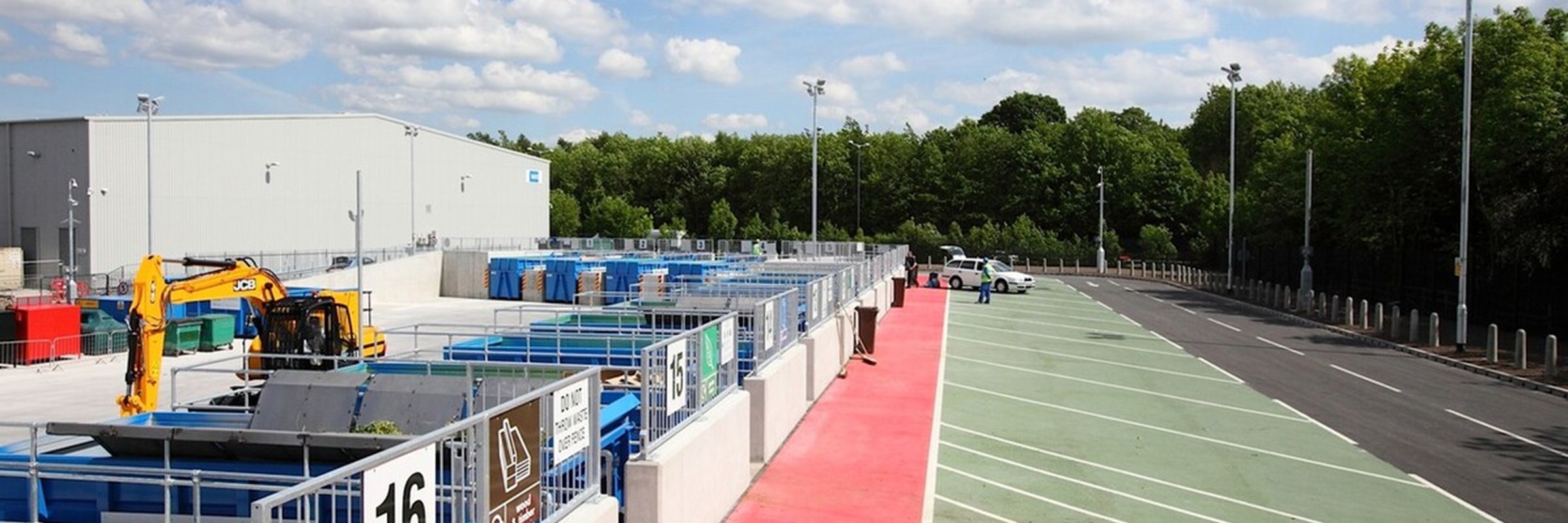
Greater Manchester’s recycling rates rise to over 50%...
Greater Manchester’s recycling rates rise to over 50% thanks to improvements at household waste recycling centres.
Recycling rates for 2021/22 have been published showing that Greater Manchester is leading the way with household recycling rates rising to over 50%, making it one of the best performing city-regions in the country. The national average in England is 44%.
The landfill diversion rate in 2021/22 was 98.4% which means that of all the household waste collected from over 1 million households across the 9 boroughs of Greater Manchester, only 1.6% was sent to landfill. Instead the majority of waste that cannot be recycled goes to energy from waste, where waste is burned to generate electricity.
DEFRA have recently published recycling rates which show an increase from 47.7% in 2020/21 to 50.9% in 2021/22 for Greater Manchester. The increase is down to improved recycling facilities across the network of 20 household waste recycling centres operated by SUEZ recycling and recovery UK. This includes new containers for mattresses, carpets, and hard plastics as well as containers where household items can be donated for reuse.
Three recycling centres also have shops where you can buy pre-loved items that would have otherwise gone to waste. The Renew shops are located at recycling centres at Boysnope Wharf in Irlam, Arkwright Street in Oldham and Woodhouse Lane in Trafford.
Revenue from sales of items in the shops goes to the Greater Manchester Mayor’s Charity (£100,000pa) and the Recycle for Greater Manchester Community Fund which opened on Monday 3rd April for a third round of funding. The fund makes £220,000 available for community groups, charities and schools for projects which help prevent, reuse, or recycle household waste. To apply visit www.recycleforgreatermanchester.com
As well as improvements at the recycling centres, Greater Manchester councils are now able to recycle street sweepings at a new SUEZ plant in Ashton-under-Lyne, Tameside. Here 90% of the grit, soil, stones, leaves, twigs, and other detritus swept from Greater Manchester’s roads is cleaned, separated, and recycled through a specialist, hi-tech mechanical sorting process.
Organic matter is extracted and transferred to other processing facilities to be turned into compost and sand and aggregates that are then used by the construction industry.
In addition to recycling more, we’re also recycling more locally, looking within the city region to recycling outlets rather than rely on overseas markets. One example is that all the paper and cardboard collected from residents’ wheelie bins and at the recycling centres goes to a paper mill in Trafford operated by SAICA where it’s recycled into more paper and card.
David Taylor; Executive Director of Waste and Resources at GMCA (A GMCA spokesperson) said: “SUEZ has made many improvements to the way household waste recycling centres are run since they were awarded the Greater Manchester waste and resources contracts in 2019, and I’m pleased to see that residents have embraced the changes and are recycling more and more.
“We are giving residents new opportunities to recycle, which has benefitted our recycling rates but also has wider benefits for the city-region. Just one example is our new process to recycle mattresses from the recycling centres. Mattresses can now be broken down into 19 different component parts that can be used again, and this new process has helped to create over 25 new jobs in the city region.”
The recycling centres are open 7 days a day form 8am to 8pm, to find your nearest visit: www.recycleforgreatermanchester.com
Dan Carolan, SUEZ contract director for Greater Manchester said: “We’re pleased to see that the improvements we’ve made at recycling centres have helped to increase the recycling rate in Greater Manchester. We’re always looking at ways to improve our processes and make it as easy as possible for people to recycle.
“Collectively we should all try to consume less, which in turn reduces the amount off stuff we have to create waste from. The next best thing is to donate unwanted items for reuse and to buy used goods, to give them a second life. Once waste has been created, we recycle as much of it as possible, which helps conserve resources, reduce greenhouse gas emissions, and promote a circular economy which benefits everyone.”
Article Published: 11/04/2023 12:53 PM